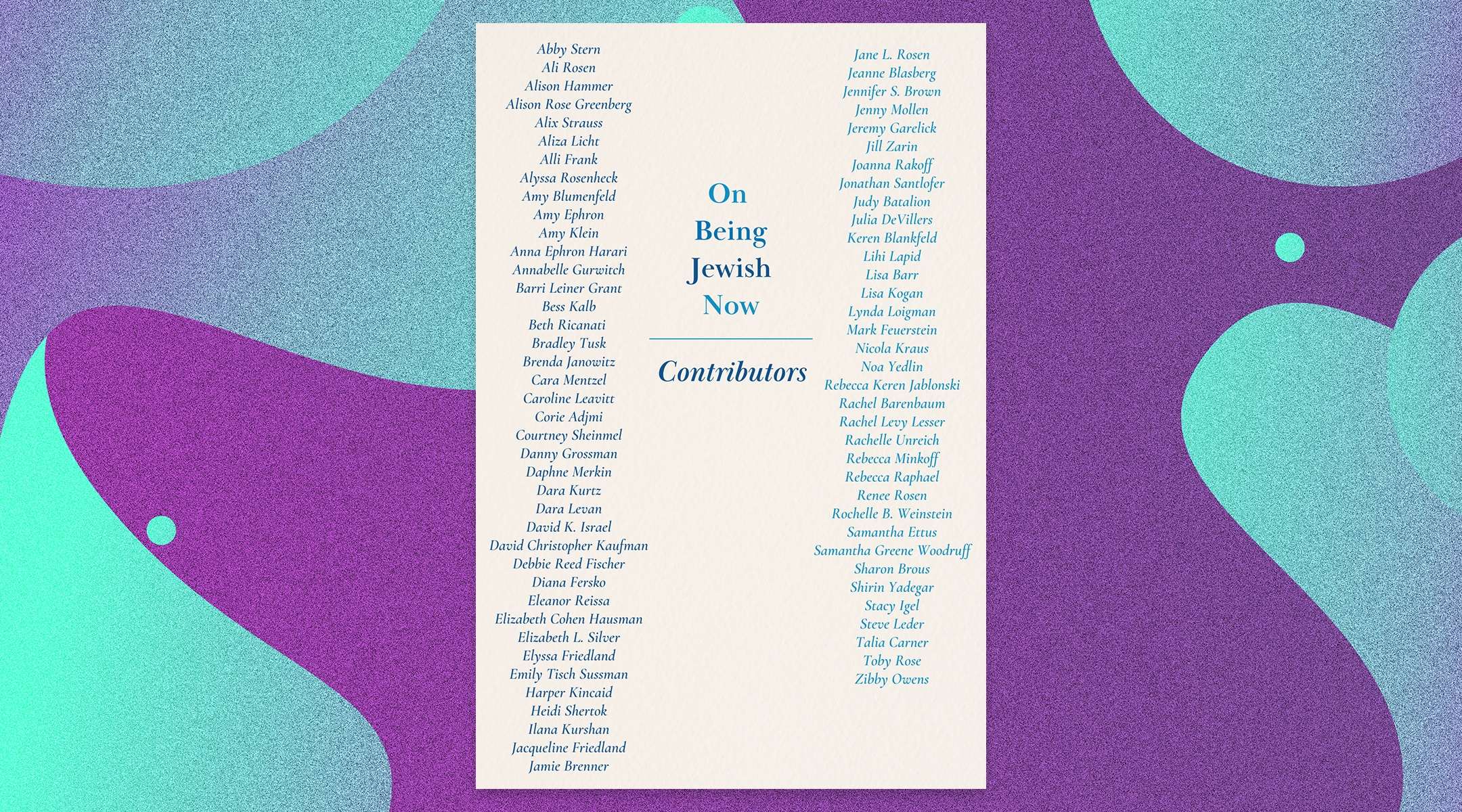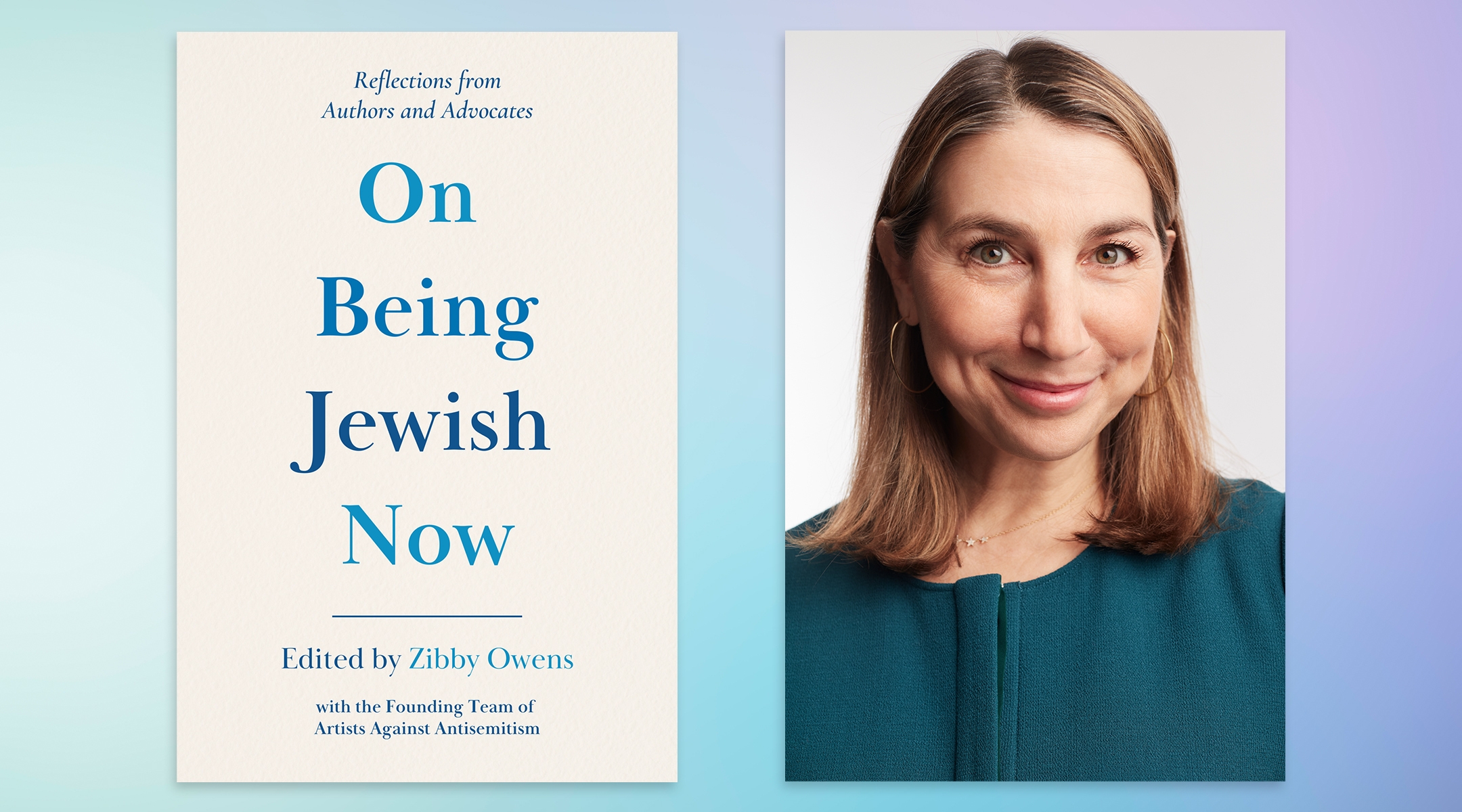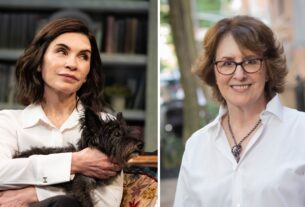Author, publisher and “bookfluencer” Zibby Owens didn’t set out to be a public face of the fight against antisemitism.
But like just about everything else, that all changed following Hamas’ attack on Israel on Oct. 7.
“Before October 7, I hadn’t experienced much antisemitism. Just a sprinkle of sea salt on a big buffet,” Owens writes in the introduction to “On Being Jewish Now: Reflections from Authors and Advocates,” an essay collection out this week from her publishing house, Zibby Books. “Suddenly, I became one of the many targets. I lost followers and had people attack me about my decision to withdraw from the National Book Awards when I raised valid concerns about antisemitism. My name was added to blacklists of Jewish authors.”
Not one be silent in the face of adversity, Owens — who recently published her first novel, “Blank,” and has a second one coming out next October — joined forces with other Jewish women authors to push back on what they saw as a tidal wave of anti-Jewish sentiment in the world of arts and letters. Together with some 30 writers, including Alison Hammer, Elyssa Friedland and Jill Kargman, she helped launch Artists Against Antisemitism, a group whose mission is to “raise awareness of antisemitism in the arts, promote education about Jewish history and culture, and unite the artistic community to build a kinder, brighter, more understanding future,” according to their web site.
Artists Against Antisemitsm is now a 501(c)(3), but when it started last year, “it was just a group of us trying to make a difference, organizing a silent auction and just banding together to get through that time and try to help and do something,” Owens, 48, told the New York Jewish Week in a recent interview via Zoom from her Upper East Side home. “We have an Instagram group chat, which has been a lifesaver this past year.”
Zibby Owens, the founder and CEO of Zibby Media. (Courtesy)
In late June — after “another thing had happened in the news that day, I can’t even remember what” — Owens drew inspiration from her feelings of despair. “I just thought, ‘Wait, let’s do an anthology,’” she said. “I’ll get all of them [the AAA writers] to write like I know they all feel. It helps me, and if other people could hear how they all feel, it will help even more people.”
At first, Owens thought the essay collection, designed to raise money for Artists Against Antisemitism, would consist of work contributed by members of the group. But very quickly its scope swelled — within the first few days, more than 200 writers were asked to “write something original about how you have felt since Oct. 7, how being Jewish makes you feel, what it means to you,” Owens said.
“This is not a political collection,” she told them. “Don’t write about politics. This is about your personal experiences and feelings, what it all means. It could be funny, it could be sad, it could be whatever, but it has to be real.”
With a three-week deadline, 75 authors — including actor Mark Feuerstein, reality star Jill Zarin, writers Joanna Rakoff and Amy Ephron, entrepreneur Bradley Tusk and Rabbi Sharon Brous — said yes. (The audio and e-book of “On Being Jewish Now” is out now; the trade paperback will hit stands Nov. 1.)
The result is a wide-ranging collection of humorous, reflective and sometimes mournful essays that touch on everything from the Holocaust to pop culture. Amy Klein, occasional (JR) contributor and author of “The Trying Game,” contributed an essay about her experiences wearing a Star of David necklace around New York City. ”I get looks,” she writes. “‘Microaggressions,’ as the kids call them, leaving me to wonder if each interaction — the traffic ticket, the refused entry to the city pool, the sneering waitress — is arbitrary or antisemitic.”
Meanwhile, New York Post editor David Christopher Kaufman, drawing on his experiences as a Jew and African American, implores Jews “who are committed to uplifting and elevating marginalized voices” to “go uplift and elevate marginalized Jewish voices. The folks who have been standing in the background, quieter than most, darker than most, poorer than most, but are very much still Jews.”

A diverse group of 75 Jewish writers contributed to the post-Oct. 7 anthology. (Courtesy Zibby Media)
As a whole, the authors’ backgrounds — their family histories, where they live, their levels of observance — vary greatly. And yet, there’s an unmistakable bond that unites them, Owens said. “We hold the same things to be true,” she said. “We value family, food, laughter, resilience, hard work. All these themes kept coming over and over again, and overall commitment to just this.”
Support the New York Jewish Week
Our nonprofit newsroom depends on readers like you. Make a donation now to support independent Jewish journalism in New York.
“It’s really an ode to Judaism — a love letter, in a way,” she said of the anthology. “It’s from a group of people — many of whom, including myself, to be honest — who had not really given it too much thought as a primary part of their identity.”
Owens — who was named to our 36 to Watch list in 2023 — wears many hats: She’s the founder and CEO of Zibby Media (aka “the Zibby-verse”), a mom of four and the owner of a bookstore in Santa Monica, California. She also runs book clubs and retreats and hosts a popular podcast, “Moms Don’t Have Time to Read Books.”
Like many Jews, Owens has experienced something of a rekindling of her Jewish identity since Oct. 7. “I feel much more connected and committed to Judaism in general,” she said. “It’s like the spotlight has shifted, and Judaism right now is center stage.”
And that’s not the only change. “When Oct. 7 happened, and as things continue to unfold over the last year, I feel I have felt called to be as public as I can about injustices as they occur,” she said of her newly public fight against antisemitism. “I see something that’s unfair, I try to call it out and be like, ‘Wait, no, that’s not right.’”




